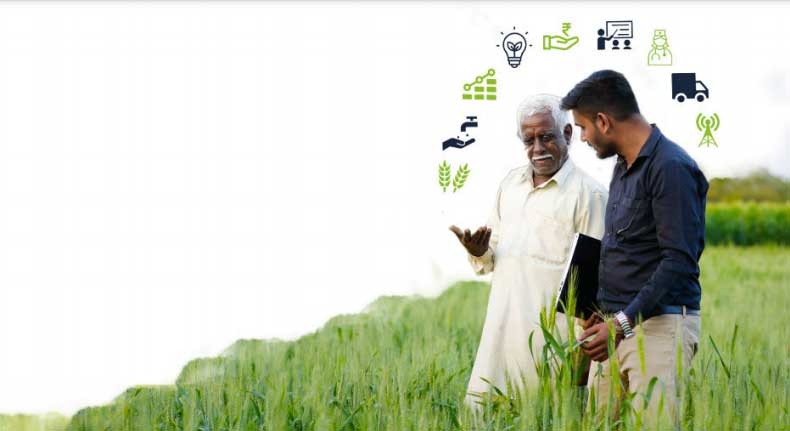Rural Collaboration
The rural economy in India has been over-dependent on agriculture for decades, and its economic growth has lagged behind urban areas due to a number of systemic issues, ranging from lack of access to energy and finance, to poor connectivity and limited access to physical and social infrastructure. Rural development challenges are systemic and inter-linked to each other, and cannot be solved in isolation. As there is strong inter-dependency among sectors, the success of an intervention in one sector can be limited by the lack of development in other supporting sectors.
The rural collaboration project aims to drive partnerships among various stakeholders for a holistic multi-sectoral development of rural communities in India, and to improve viability of market-based interventions, with access to energy and financial services as key enablers.
Theory of Change
We believe that an integrated, collaborative approach has the potential to create more impact on the ground by leveraging synergies across sectors and bringing together complementary strengths.
A framework that helps solution providers in understanding the needs of the local communities and match it to appropriate solutions can be quite a helpful tool. This can reduce overall operational costs, as well as lower execution risks for the solution provider, thus increasing the economic viability of the rural-focussed solutions.
Likewise, this framework can also be used by philanthropies and non-profits to identify the most relevant solutions for their specific geographies. Ultimately, this framework can help drive essential collaboration among these and other stakeholders in the rural development space.
Partnering for progress
Shell and Tata Trusts have partnered under the India 2022 coalition, powered by Xynteo, to create an integrated approach, enabling collaboration for rural-focussed solutions.
Stages of development tool
A data-driven tool has been developed that aids start-ups, philanthropists and investors working in the rural development space to make informed decisions, identify relevant solutions and maximise social impact.
The full version can be accessed on the project website - http://ruralcollaboration.in/.
About Partners
Shell
Shell is one of the most diversified international energy company in India with over 9500 employees and presence across upstream, integrated gas, downstream, renewable energy, and deep capabilities in R&D, digitalization, and business operations. With a retail presence across six states – Karnataka, Tamil Nadu, Telangana, Maharashtra, Gujarat, and Assam - Shell is expanding its network of fuel stations across the country. It has the entire Lubricants end-to-end value chain in India, from conceptualization and development to production and distribution. Serving 50000 consumers through a robust network of 200+ distributors across B2C and B2B lines of Sales. The company also fully owns and operates an LNG re-gasification terminal at Hazira. With a focus on digitization and future-ready sustainable solutions, the company is nurturing a vibrant ecosystem in India to accelerate energy innovations with Shell E4 for start-ups, Shell Eco-marathon and investments in new energy companies like Husk Power, d.light, Orb Energy and Cleantech Solar. Shell also remains committed to making positive contributions to the communities in which it operates through programmes like NXplorers, Access to Energy and Road Safety across India. https://www.shell.in/
India2022, Powered by Xynteo
India2022, powered by Xynteo, is a coalition of purpose-led businesses committed to reinventing the growth model for India, to fit the economic, social and environmental realities and needs of the 21st century. The coalition was conceptualised in late 2016 and launched in March 2017, with the support of its founding partners Hindalco, Aditya Birla Group, Cyient, Hindustan Unilever Limited (HUL), Shell, Tata Trusts, TechnipFMC, State Bank of India (SBI) and WPP. https://xynteo.com/
The framework will be shared with interested stakeholders for use in designing and implementing rural-focussed programs.

